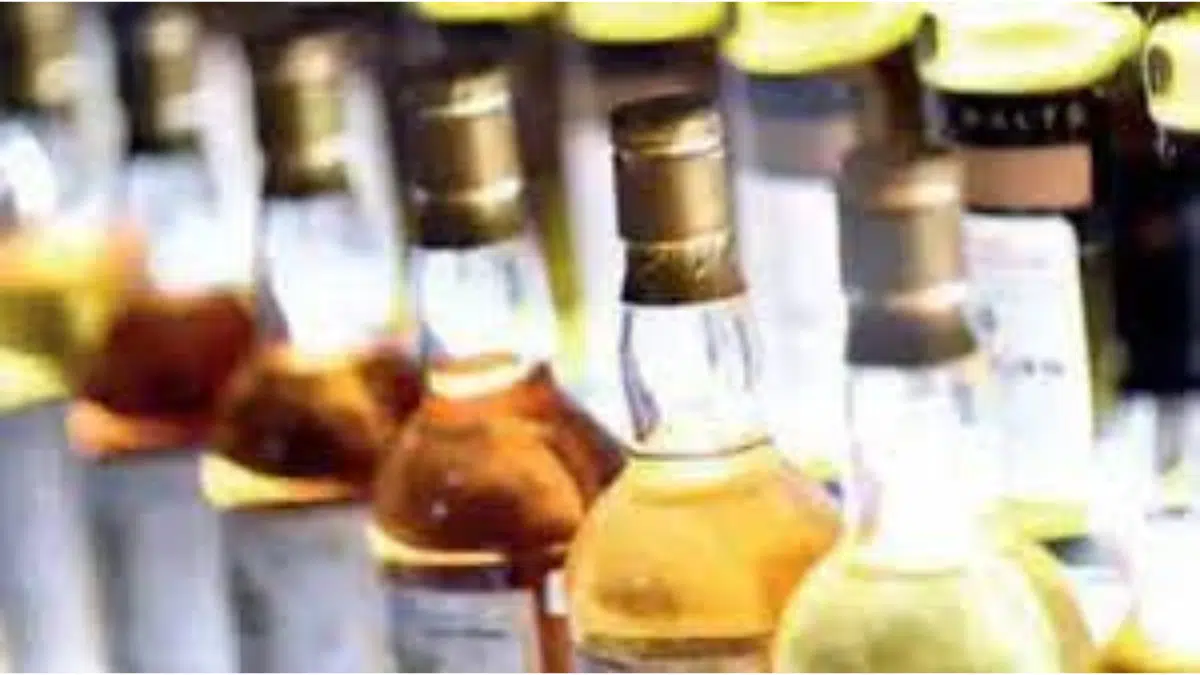In a recent investigation done by Enforcement Directorate (ED), an illegal liquor syndicate in Chhattisgarh has come into the picture. The ED also alleged that Indian Administrative Service (IAS) Officer, Anil Tuteja, was the kingpin of the nefarious syndicate. It further claimed the involvement of liquor businessman Anwar Dhebar.

Anil Tuteja is a 2003 batch IAS officer, who is presently acting as a Joint-Secretary in the state’s industry and commerce department. Whereas, the liquor businessman, Anwar Dhebar, is the elder brother of a Congress Leader and Raipur Mayor Aijaz Dhebar.
The ED investigation has further revealed that around 30-40 percent of total liquor sales in the state, were the sale of “unaccounted illicit” liquor from 2019 to 2022.
Anwar Dhebar was arrested by the ED on Saturday and has been sent to a four-day custody under ED, by a Prevention of Money Laundering special court.
The ED filed an application in a special court in Raipur on Saturday to request the remand of Anwar Dhebar, a liquor businessman. According to the ED, a group consisting of high-ranking state government officials, private individuals, and political executives has been involved in a significant liquor trade scam in Chhattisgarh. This syndicate has allegedly generated over ₹ 2,000 crore in corrupt funds.
Composition and the Modus Operandi of the Syndicate
The ED alleged that a criminal syndicate had been functioning in Chhattisgarh, exercising control over the top management of crucial state departments, particularly the liquor-related excise department and state public sector undertakings (PSUs). The syndicate was reportedly collecting illicit bribes.

According to the ED, the illegal syndicate was composed of high-ranking state government officials, private individuals, and political executives from the state government. The ED also claimed that Tuteja was overseeing the operations and was the mastermind behind the syndicate, along with Anwar.
It was further told by the ED that, the excise department was the center point of corruption and huge amounts of cash were being collected at every step in the distributed hierarchy. After keeping its share, the syndicate would pass on the final amount to the political parties who would further use them for political benefits and electioneering.
The ED alleged that Anwar was the primary collector and public face of the syndicate. They further claimed that digital evidence showed that Anwar had delivered ₹ 14.41 crore to Tuteja.
The ED’s application stated that the syndicate had gathered illicit funds through three distinct methods linked to the liquor trade in Chhattisgarh. These included charging illegal commissions from liquor suppliers to account for their sales in the state, selling unrecorded and untaxed country liquor (which is popular in Chhattisgarh) through state-run shops, and receiving annual commissions to permit distilleries to function in the state.
Historical records against Anil Tuteja and Anwar Dhebar
Last year, a case against Tuteja and others was filed under PMLA by the agency to investigate the matter, based on a chargesheet filed by the IncomeTax Department in a Delhi Court.
In 2017, changes were made to the state’s excise policy, resulting in the establishment of the Chhattisgarh State Marketing Corporation Limited (CSMCL). The CSMCL was tasked with selling liquor in the state through its stores.
According to the ED, in May 2019, Anwar influenced the appointment of Arunpati Tripathi as the managing director of CSMCL. Tripathi was allegedly instructed to increase the amount of bribe commission collected on liquor acquired by CSMCL and to make arrangements for selling non-duty paid liquor in the corporation-run shops. The ED claimed that Tripathi received support from Anwar and senior IAS officers in carrying out this operation.
The ED’s investigation revealed that in 2019, Anwar convened a meeting to determine the commission rate on the sale of country liquor. The distillers were reportedly asked to pay a commission of ₹ 75 per case on their procurement by CSMCL, with the assurance from Anwar that he would raise their “landing rates” accordingly. The syndicate adopted this system, resulting in the collection of large commissions on the sale of accounted liquor cases. The ED claimed that the majority of the funds collected were given to Anwar, who, in turn, shared the majority of it with a political party.













